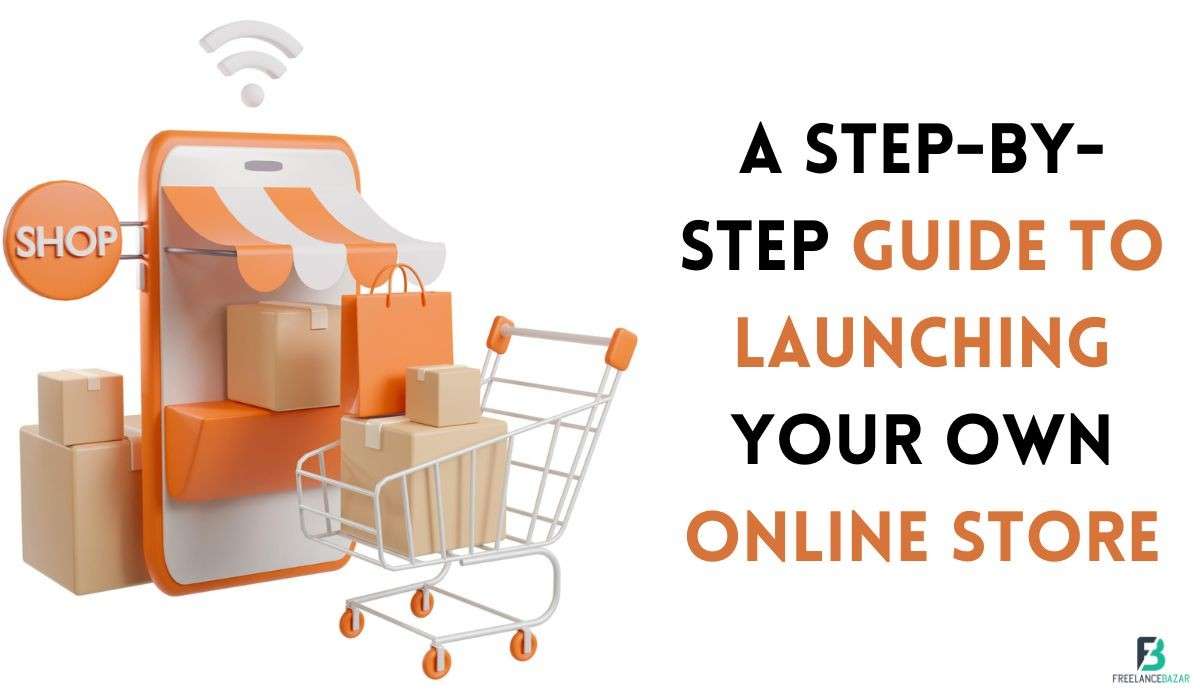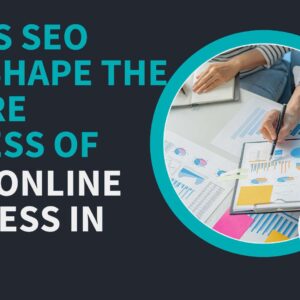Are you ready to turn your e-commerce idea into a profitable business? Starting an e-commerce business can be an exciting and rewarding venture, but without the right roadmap, it can also be overwhelming. That's why we've created this beginner's guide to help you navigate the path from idea to profit.
Whether you're a budding entrepreneur or simply looking to expand your existing brick-and-mortar store online, this article will provide you with the essential steps to get started. From finding your niche and conducting market research to setting up your online store and implementing marketing strategies, we'll cover it all.
With the rapid growth of the e-commerce industry, now is the perfect time to embark on this journey. But don't worry, you don't need to be a tech wizard or have a huge budget to succeed. This roadmap is designed for beginners, providing you with practical tips and insights to help you make informed decisions.
Transform your online business with Freelancebazar's expert e-commerce website design services. Elevate your brand, enhance user experience, and boost sales with our tailored solutions. Discover the power of visually stunning and functional e-commerce platforms. Get started today!
So, grab a pen and paper, and get ready to transform your e-commerce dreams into a profitable reality. It's time to take that first step towards building your future in the world of online business.
1: Why start an e-commerce business
The allure of e-commerce lies in its global reach and 24/7 accessibility. Traditional brick-and-mortar stores are limited by location and operating hours, whereas an online store breaks these barriers, allowing you to reach a wider audience. The potential for scalability and flexibility is unmatched, making it an attractive option for entrepreneurs. Moreover, the lower overhead costs and reduced need for physical infrastructure contribute to the appeal of starting an e-commerce business.
2: Market research and finding a profitable niche
Prior to immersing yourself in the realm of e-commerce, conducting comprehensive market research is essential. Identify trends, study competitors, and understand the needs of your target audience. Finding a profitable niche is about recognizing gaps in the market and catering to unmet demands. This will delve into strategies for conducting effective market research and choosing a niche that aligns with your passion and market trends.
3: Setting up your e-commerce website
The backbone of any online store is a well-designed and functional website. In this section, we will explore the step-by-step process of setting up your e-commerce website. From choosing the right platform and domain name to designing a user-friendly interface, we'll cover the essential elements that contribute to a seamless online shopping experience.
4: Product sourcing and inventory management
The success of an e-commerce business heavily relies on the quality and availability of products. Whether you opt for dropshipping, manufacturing, or sourcing from wholesalers, understanding the nuances of product sourcing is crucial. Efficient inventory management ensures you can meet customer demands while minimizing costs and waste. This will provide insights into sourcing strategies and inventory management best practices.
5: Building your brand and creating a unique selling proposition
In a saturated online market, building a strong brand is paramount. This will guide you through the process of defining your brand identity, creating a compelling brand story, and establishing a unique selling proposition (USP) that sets your online store apart. A robust brand not just draws in customers but also nurtures loyalty and instills trust.
6: Marketing and promoting your e-commerce business
Marketing is the lifeblood of any business, and e-commerce is no exception. This will explore various digital marketing strategies to promote your online store effectively. From social media marketing and email campaigns to influencer collaborations and paid advertising, we'll cover a range of tactics to drive traffic and generate sales.
7: Optimizing your website for search engines
A well-optimized website is more likely to rank higher in search engine results, increasing visibility and attracting organic traffic. This will provide a comprehensive guide on search engine optimization (SEO) techniques tailored for e-commerce websites. Learn how to optimize product pages, utilize keywords, and improve site speed to enhance your online presence.
8: Tracking and analyzing your e-commerce metrics
Information serves as a potent instrument for making informed decisions and driving continual improvement. This will introduce you to key e-commerce metrics and analytics tools that help track the performance of your online store. From monitoring conversion rates and customer acquisition costs to analyzing website traffic and customer behavior, understanding these metrics will empower you to make informed business decisions.
Conclusion and next steps
As we conclude this guide, reflect on the journey from conceptualizing your e-commerce business to implementing effective strategies for growth. The online marketplace is dynamic, requiring continuous adaptation and innovation. Embrace the challenges, stay updated on industry trends, and be prepared to iterate your strategies for sustained success. Your e-commerce venture has the potential to not only thrive in the digital landscape but also make a lasting impact on the global market. Good luck on your e-commerce journey!
Freelancebazar's expert e-commerce website design services. Elevate your brand, enhance user experience, and boost sales with our tailored and visually stunning e-commerce solutions. Discover the power of seamless design for a thriving online business. Get started today!





